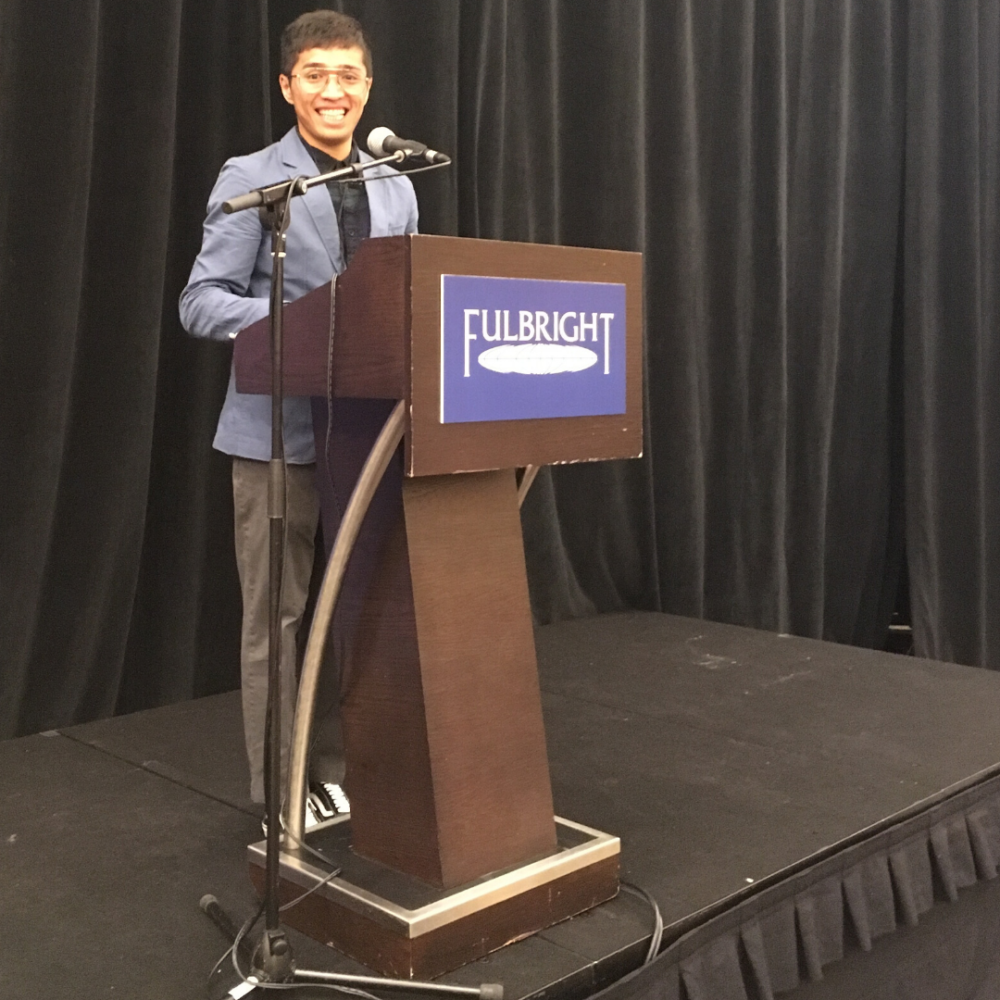What is the impact on students when a teacher takes a Cambridge professional development qualification?
Temuujin Nyamdavaa is an English teacher who works at Orchlon International School, Ulaanbaatar, in Mongolia. The school offers Mongolian national curriculum along with Cambridge curriculum.
He took the Cambridge International Certificate in Teaching and Learning Module 1 in 2017-18, gaining a distinction. The course gives candidates a deeper understanding of the principles and concepts of learning and teaching, helping them to evaluate their lessons and be more reflective of their practice during and after training.
We asked him more about how the course had impacted his teaching and his students.
How did you benefit from taking Cambridge Professional Development Qualification in Teaching and Learning?
I benefited immensely in terms of gaining a deeper understanding of learning and teaching principles, such as active learning and assessment for learning, and being able to apply them into my classroom practices.
I stopped thinking: “What do I teach?” and started asking, “How do I teach?” and “How do I facilitate my students to achieve their learning outcomes?”
I also became more reflective of my practice. I now sit down twice a week and reflect on my lessons. I see my students learning better, achieving higher grades and most importantly, becoming more independent and self-directed learners.
What is the most significant change in your classroom teaching?
My classroom has become more student-centred. Students take ownership of their learning. Before, I thought that as a teacher, I should impart knowledge, not skills, into my students’ heads. That made me more dominant in the classroom, I did most of the talking.
After the Cambridge PDQ training, I began to hand over responsibility to my students. They started doing the most of the talking and actively being involved in their learning. For example, when I am teaching a writing technique, in the past I would get the class to look at a writing sample, discuss its features and then I would ask my students to write something similar. But now, I involve my students more and encourage them to write their first draft independently. After that, instead of me checking their writing, I encourage them to assess themselves (self-assessment) referring to the success criteria we created together. This way, students are more involved in their learning and evaluate their approach (metacognition) toward the task. I further encourage them to assess one another’s writing (peer-assessment). Here, students take advantage of collaborative learning and benefit from the examples of others.
Have you noticed any positive change on your students’ learning?
My students are becoming more aware of the fact that learning takes place as a result of their active involvement. I tell them that it’s not only my responsibility as a teacher to deliver the knowledge or skills to them, but it’s their responsibility to acquire knowledge and skills.
Also, I remind them of the importance of the process, not the product. Completing a task without figuring out the reason behind it does not lead to learning. Instead, being actively involved in the different steps of completing a task collaboratively leads to learning.
How did you manage your time when you were participating in the Cambridge PDQ while also managing your regular teaching work? Do you have any suggestions for teachers who are considering taking a Cambridge PDQ?
We had our Cambridge PDQ training once a week after work. The training schedule was quite flexible and mentors and experienced practitioners were willing to help. I had no problem with time management or any assignment delays thanks to our instructor. The only suggestion I have for those who are considering Cambridge PDQ training is to grab it and take it as a chance to improve your practice!
What is your plan for your own professional development?
I can’t wait to start the Cambridge International Diploma in Teaching and Learning Module 2 and 3 as soon as possible. Also, I came across a wonderful book title Making Thinking Visible by Ron Ritchhard, Mark Church and Karin Morrison while I was doing the Cambridge PDQ training. I have benefited a lot from the book and even implemented some of its activities in my daily teaching practices. I aim to become an expert into activities that promote engagement, understanding, and independence for all learners.






